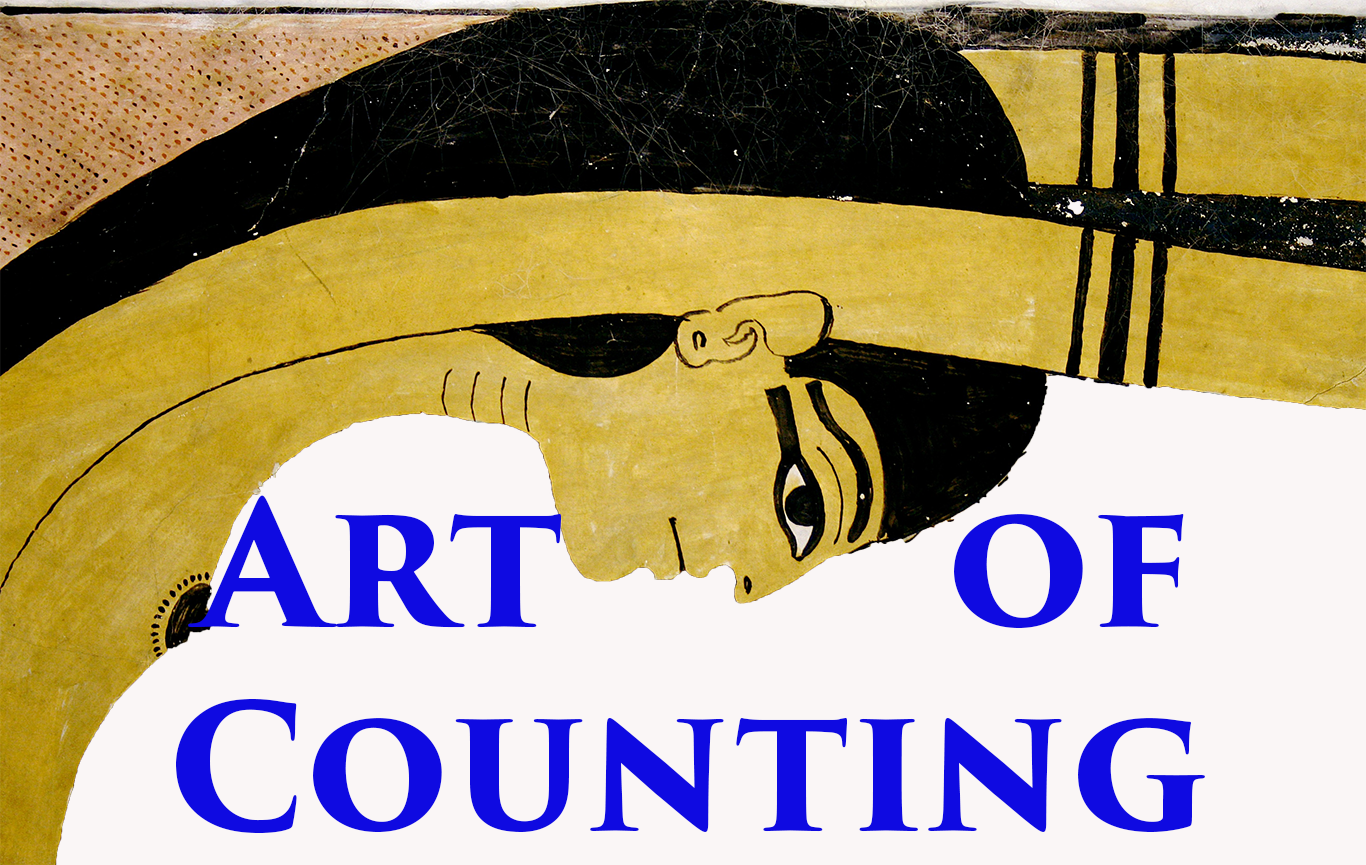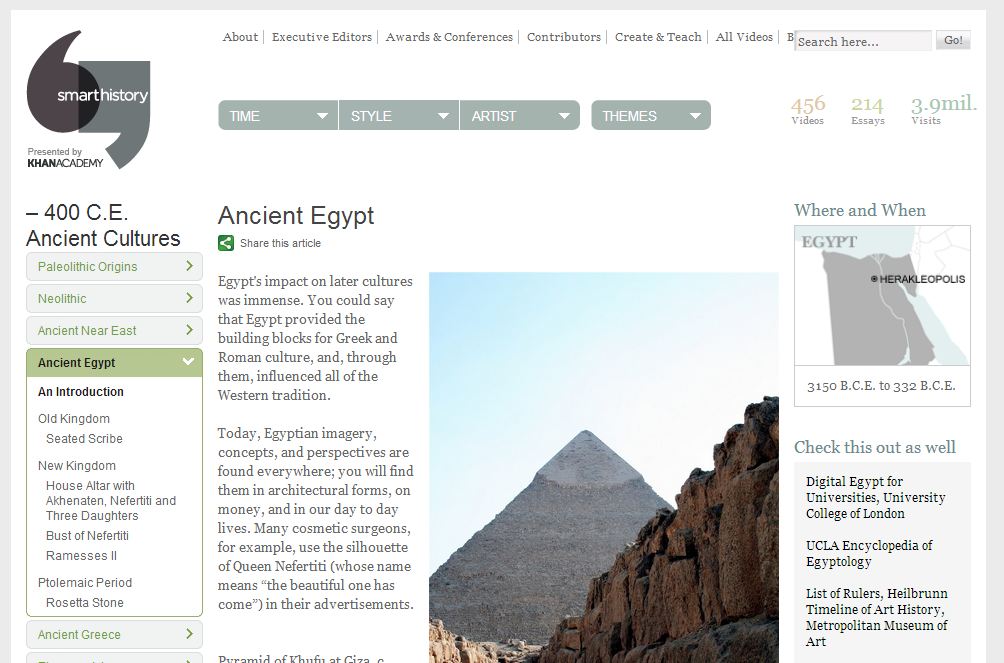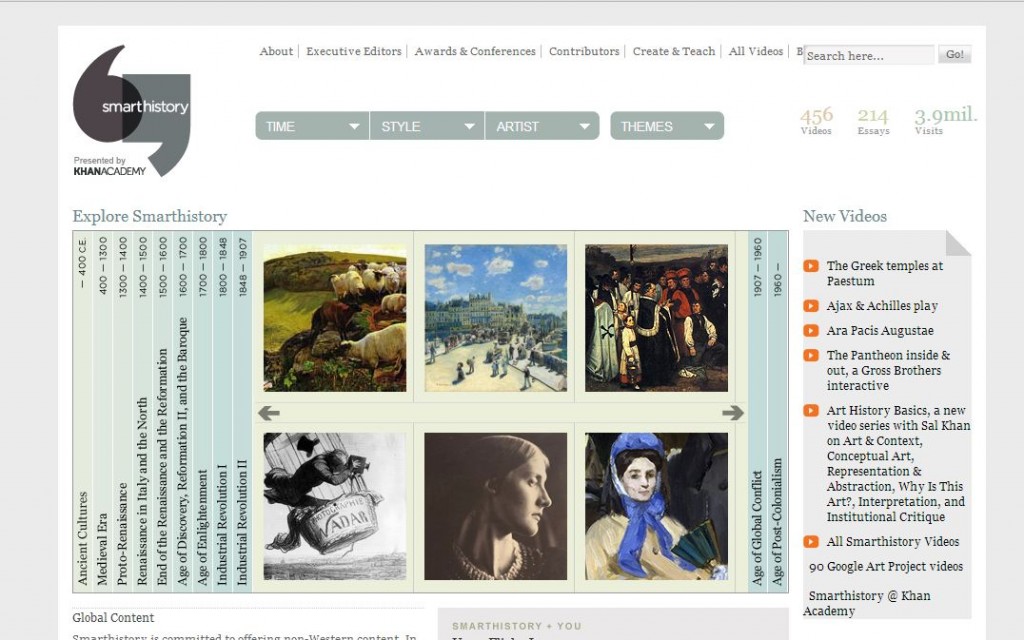A few weeks ago, I became aware of a marvelous art history project known as Smarthistory. Founded by two New York art historians, Dr. Beth Harris and Dr. Steven Zucker, Smarthistory grew from their pursuit of creating an accessible way to introduce art history to their students, as well as to the interested public. Their approach is based on using creative conversations that engage the student in these topics, which traditionally had excluded all but the academically minded.
To this end, they began by spending time in many of New York’s museums, recording brief, but information-packed, conversations as they observed a work of art. In doing so, they are not only able to capture a sense of “being there”, but also provide contextual information about many pieces that is completely lost in traditional art history textbook publication.
Watch their video on the Ecstacy of St. Theresa to get a sense of the profound difference–most textbooks will present this Baroque sculpture in isolation, only highlighting a few details, and often presenting it completely removed from the atmospheric chapel Bernini specifically created for it.
Being specialists in Renaissance, Victorian, and Modern Art, these eras are extensively covered at Smarthistory. Drs. Harris and Zucker have also expanded their knowledge considerably to provide information on numerous areas outside their particular specialties, especially since Smarthistory joined forces with The Khan Academy (in October 2011) and became able to devote their full time and attention to this project. There are now 456 videos and 214 essays available, on works ranging from Prehistory to those of current artists. Smarthistory is also linked with the Google Art Project and has provided nearly 120 videos to coincide with Google’s massive efforts to make art more accessible worldwide.
To deal with areas far outside their own expertise, Drs. Harris and Zucker have wisely enlisted a wide array of other specialists to contribute to this important project. When I learned of this awesome project, I was surprised to find that, although there are a number of Classicists contributing, there were no Egyptologists. After contacting them and offering my services, we discussed their goals and vision for Smarthistory. Finding that our goals were in alignment, I’ve decided to contribute time supporting this effort to disseminate high-quality information in a conversational style to a world-wide audience.
My first essay, a general introduction to ancient Egypt, is now available. Forthcoming essays will introduce the basics of Egyptian art, histories of each major era, and a variety of discussions on canonical works to aid the learner to gain a more complete understanding of the complexities of Egyptian art.




subject : Smart-history
‘had excluded all but the academically minded’ : for us, curiously, Egyptians seems to be very logical but subjective !
May I submit the concept that individual Egyptian relief-frames of religious subjects
DO NOT contain explanatory text but eventually the text , in Egyptian logic, of an Axiom (a sochialy and culturally accepted fact).
Why should we not translate the ‘Djed-mdw’ as ‘axiom’ ?
If you read hieroglyphs, you could eventually notice that they naturally use / imply the usage of the AND and the OR just by the positioning of the words. So they didn’t invent ‘Logic’ ?
Axiom : You know ; two parallel straight lines are lines which meet at infinitum !
In fact an accepted but complete stupid statement,
expressed by people who say they know what they speak of ! (eventually of Egyptian origin)
In our in-ability to express a problem, they invent a concept (an /(all) abstract word(s) for an Egyptian) like ‘infinitum’ or ‘god’., which both represent a ‘believe’ and not a reality, that is something they agree on and subjectively know DOESN’T EXIST.
Don’t be afraid to remember to your readers that Egypt = G:ai-gup-tos = hwt-ka-ptk (perceived by a poor foreign hear / brain).
As example to me : It took me 6 months (and more) to detect the ‘blanc’ between words in spoken English (or any other like Germane, Turquish, Swedish…) language..
Thank-you to the moderator !
PS: By chance, you placed ‘spell-check’ in your nice e-mail box !
PS: It is the same with F:Celtes and F:Gaulois, for originals like Keltoi and Gallates , they are the same bunch.
Ceasar, Herodote and Manethon were not prepared to listen to another spoken culture.